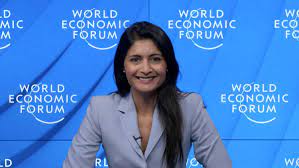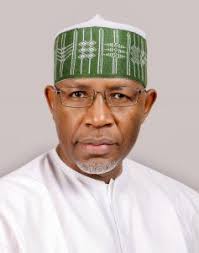…Says Misinformation, Disinformation Pose Biggest Short-Term Risks
Drawing on nearly two decades of original risks perception data, the World Economic Forum (WEF) has warned the global community of a global risks landscape in which progress in human development is being chipped away slowly, leaving states and individuals vulnerable to new and resurgent risks.
The Forum, in its ‘Global Risks Report 2024’ published on Wednesday, noted that against a backdrop of systemic shifts in global power dynamics, climate, technology and demographics, global risks were stretching the world’s adaptive capacity to its limit.
The key findings of the report indicated that cooperation on urgent global issues could be in increasingly short supply, requiring new approaches to addressing risks and that two-thirds of global experts anticipated a multipolar or fragmented order to take shape over the next decade, in which middle and great powers contest and set – but also enforce – new rules and norms.
The report, produced in partnership with Zurich Insurance Group and Marsh McLennan, draws on the views of over 1,400 global risks experts, policy-makers and industry leaders surveyed in September 2023. Results highlight a predominantly negative outlook for the world in the short term that is expected to worsen over the long term. While 30% of global experts expect an elevated chance of global catastrophes in the next two years, nearly two thirds expect this in the next 10 years.
Commenting on the report’s findings, the WEF Managing Director, Saadia Zahidi, said: “An unstable global order characterized by polarizing narratives and insecurity, the worsening impacts of extreme weather and economic uncertainty are causing accelerating risks – including misinformation and disinformation – to propagate.
“World leaders must come together to address short-term crises as well as lay the groundwork for a more resilient, sustainable, inclusive future”, she added.
The report identified misinformation and disinformation as biggest short-term risks, while extreme weather and critical change to Earth systems are greatest long-term concern.
The WEF clarified: “Concerns over a persistent cost-of-living crisis and the intertwined risks of AI-driven misinformation and disinformation, and societal polarization dominated the risks outlook for 2024. The nexus between falsified information and societal unrest will take centre stage amid elections in several major economies that are set to take place in the next two years. Interstate armed conflict is a top five concern over the next two years. With several live conflicts under way, underlying geopolitical tensions and corroding societal resilience risk are creating conflict contagion.”
On global economic outlook, the Forum predicted that the coming years would be marked by persistent economic uncertainty and growing economic and technological divides and ranked lack of economic opportunity as the sixth risk in the next two years.
It added: “Over the longer term, barriers to economic mobility could build, locking out large segments of the population from economic opportunities. Conflict-prone or climate-vulnerable countries may increasingly be isolated from investment, technologies and related job creation. In the absence of pathways to safe and secure livelihoods, individuals may be more prone to crime, militarization or radicalization.”




